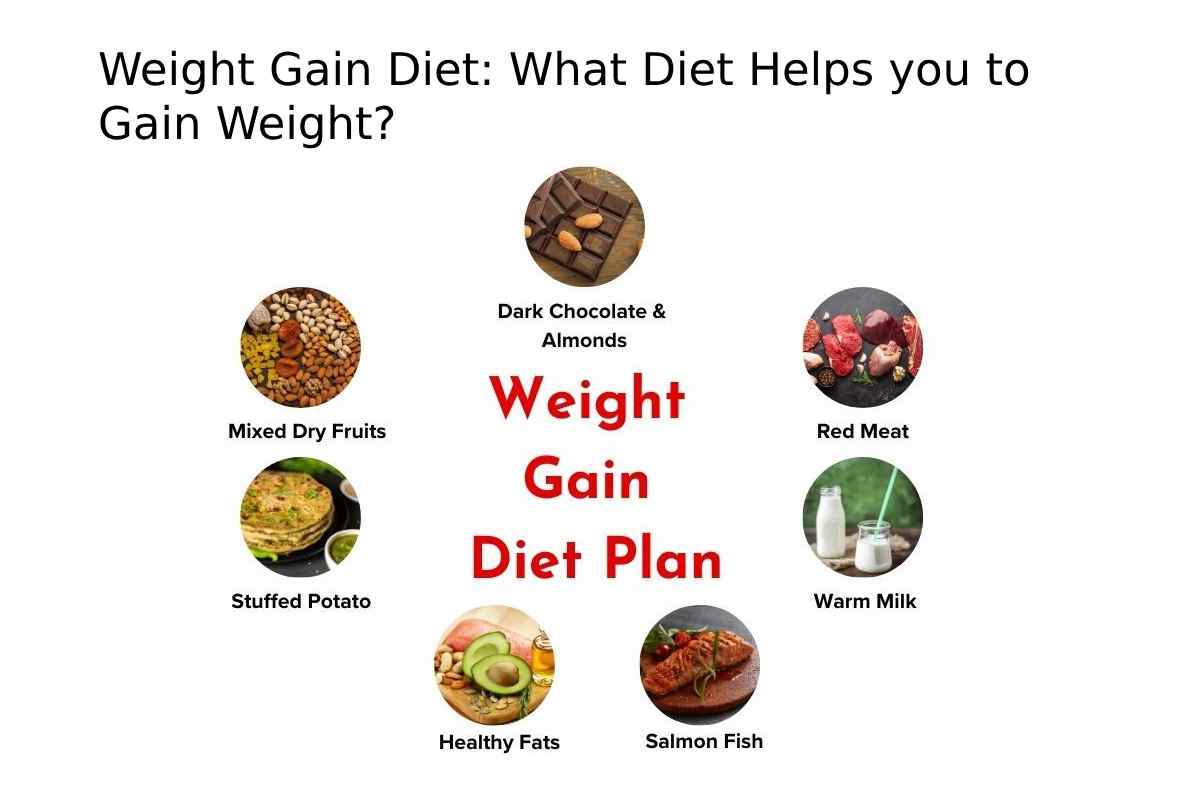Weight Gain Diet: Many people struggle with weight loss, while others struggle with their inability to put on weight. Every human body must be at its ideal weight to be healthy. While numerous conversations focus on weight loss, there aren’t as many regarding weight gain.
Gaining weight is a top objective for many people since it improves their attractiveness. Don’t eat whatever you like if you’re trying to gain weight. In other words, don’t add a variety of chocolates, candies, drinks, and cakes to your regular meals. They are calorie-dense and not nutritious.
When you’re on an assignment to put on weight, foods rich in added sugar may seem harmless, but they are situated. The gun triggers the production of inflammatory proteins that cooperate with your resistant system and make you susceptible to illnesses.
Table of Contents
The Right Way of Gaining Weight
Healthy diet plan for weight gain. Eat small meals for lean proteins and plenty of fresh fruits and vegetables throughout the day. Replace soda with nutritious drinks and add healthier foods such as eggs and cheese calories to your diet.
Sleep healthy, as this is when your body builds muscle, and circumvent drinking water before meals as it stops optimal calorie absorption. Most highly, exercise right. Avoid cardio movements, as they will burn the calories you’re working hard to add to your diet.; emphasise forte training to develop muscle. Overhead all, put on weight for all the right reasons.
Best Foods to Gain Weight
Complement the following foods to your weight gain diet to put on weight rapidly yet safely.
Milk
It is rich in calcium and other minerals and is also an excellent source of protein. Research suggests that drinking milk after a training workout helps build muscle more efficiently than drinking soy milk. You can drink milk by itself and with meals or use it as a beverage base.
Nuts
Nuts are high-calorie-dense, nutritious foods, perfect for a weight-gain diet. You can eat nuts or add butter and pastes to seasonings and smoothies. Optionally, syndicate them with fruits and dairy to make a weight-gain smoothie.
Potatoes and Sweet Potatoes
Both of these starchy vegetables are outstanding foods for weight gain. It is rich in carbohydrates and calories, while sweet potatoes contain starch, fiber, and other essential nutrients.
Avocados
Avocados are a good source of healthy fats; a big avocado has over 300 calories. Moreover, they are a rich source of vitamins and minerals, making them an all-rounder for diets to gain weight.
Is a Weight Gaining Diet a Choice for You?
A weight-gaining diet is very similar to a healthy weight-loss diet. In both cases, most nutrition experts recommend eating foods rich in nutrients and not eliminating major food groups. You will avoid “empty calorie” foods. The chief difference between the two diet approaches is the calories you consume.
The 2020-2025 USDA Nutritional Guidelines state that an individual’s daily calorie allowance varies based on their current weight, age, sex, health, and activity level.2
Often, a 2,000-calorie diet remains used as an average. Adding about 500 calories to this everyday level can help you gain a pound or so per week. This type of gradual alteration is best. Use this calculator to assist you in setting a daily calorie goal.
Conclusion
There is no miracle drug to obtain weight. By eating healthy, calorie-dense meals, avoiding junk and fried foods, and engaging in regular exercise, you may focus on gaining weight sustainably and healthily. Bananas, custard apples, mangoes and avocados are high-calorie, sweeter fruits that might contribute to weight gain.

